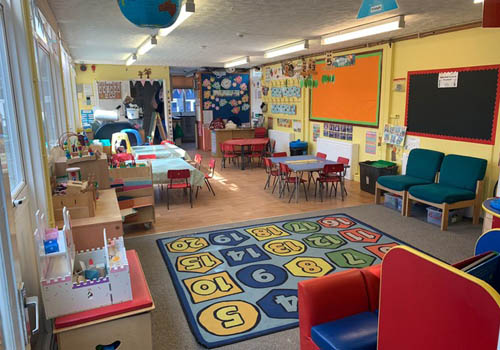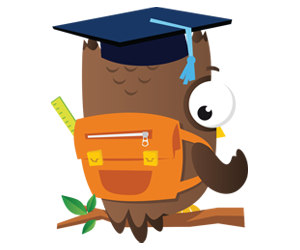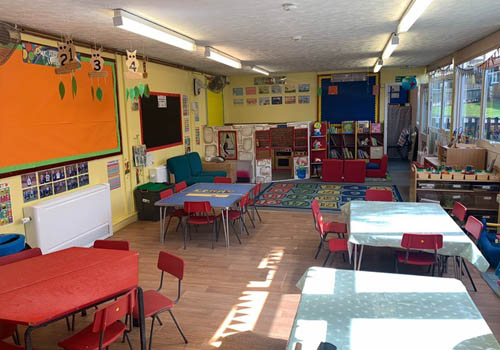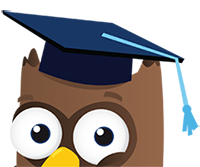Learning and Development
 How the Owl Pre-School provides for learning and development
How the Owl Pre-School provides for learning and development
Children start to learn about the world around them from the moment they are born. The care and education offered by the Owl Pre-School helps children to continue to do this by providing all the children with interesting activities that are appropriate for their age and stage of development.
The Areas of Learning and Development comprise:
● Prime Areas
Personal, social and emotional development.
Communication and language.
Physical development.
● Specific Areas
Literacy.
Mathematics.
Understanding the world.
Expressive arts and design.
For each area, the level of progress that children are expected to have attained by the end of the Early Years Foundation Stage is defined by the Early Learning Goals. These goals state what it is expected that children will know, and be able to do,
by the end of the reception year of their education.
We refer to non-statutory curriculum guidance to support our professional judgment as we assess

each child's progress and level of development as they progress towards the Early Learning Goals. We have regard to these when we assess children and plan for their learning by creating a curriculum that is ambitious and meets every child's needs. Our educational programmes support children to develop the knowledge, skills and understanding they need for our approach to learning and development and assessment.
Assessment
 Our approach to learning and development and assessment
Learning through play
Our approach to learning and development and assessment
Learning through play
Being active and playing supports young children's learning and development through doing and talking. This is how children learn to think about and understand the world around them. We use the EYFS statutory education programmes to plan and provide opportunities which will help children to make progress in all areas of learning. This programme is made up of a mixture of activities that children plan and organise for themselves, and activities planned and led by the Owl team.
Characteristics of effective learning
We understand that all children engage with other people and their environment through the characteristics of effective learning that are described in the Early Years Foundation Stage as:
● playing and exploring - engagement
● active learning - motivation
● creating and thinking critically – thinking
Assessment
We assess how young children are learning and developing by observing them. We use information that we gain from observations of the children, to understand their progress and where this may be leading them. We believe that parents know their children best and we will ask you to contribute to assessment by sharing information about what your child likes to do at home and how you, as parents, are supporting development.
We may make periodic assessment summaries of children's achievement based on our on-going observations. These help us to build a picture of a child's progress during their time with us and form part of children's records of achievement/learning journeys. We undertake these assessment summaries at regular intervals, as well as at times of transition, such as when a child moves on to school.
The progress check at age two
The Early Years Foundation Stage requires that we supply parents and carers with a short-written summary of their child's development in the three prime areas of learning and development - personal, social and emotional development; physical development; and communication and language - when a child is aged between 24 - 36 months. Your child's key person is responsible for completing the check using information from on-going observations carried out as part of our everyday practice, taking account of the views and contributions of parents and other professionals.
Records of achievement/learning journeys
We keep a record of achievement/learning journey for each child, using the Tapestry app. Your child's record of achievement/learning journey helps us to celebrate together her/his achievements and to work together to provide what your child needs for her/his well-being and to make progress.
Your child's key person will work in partnership with you to keep this record. To do this you and she/he will collect information about your child's needs, activities, interests and achievements. This information will enable the key person to identify your child's progress. Together, we will then decide on how to further support your child's learning and development.

 each child's progress and level of development as they progress towards the Early Learning Goals. We have regard to these when we assess children and plan for their learning by creating a curriculum that is ambitious and meets every child's needs. Our educational programmes support children to develop the knowledge, skills and understanding they need for our approach to learning and development and assessment.
each child's progress and level of development as they progress towards the Early Learning Goals. We have regard to these when we assess children and plan for their learning by creating a curriculum that is ambitious and meets every child's needs. Our educational programmes support children to develop the knowledge, skills and understanding they need for our approach to learning and development and assessment.

